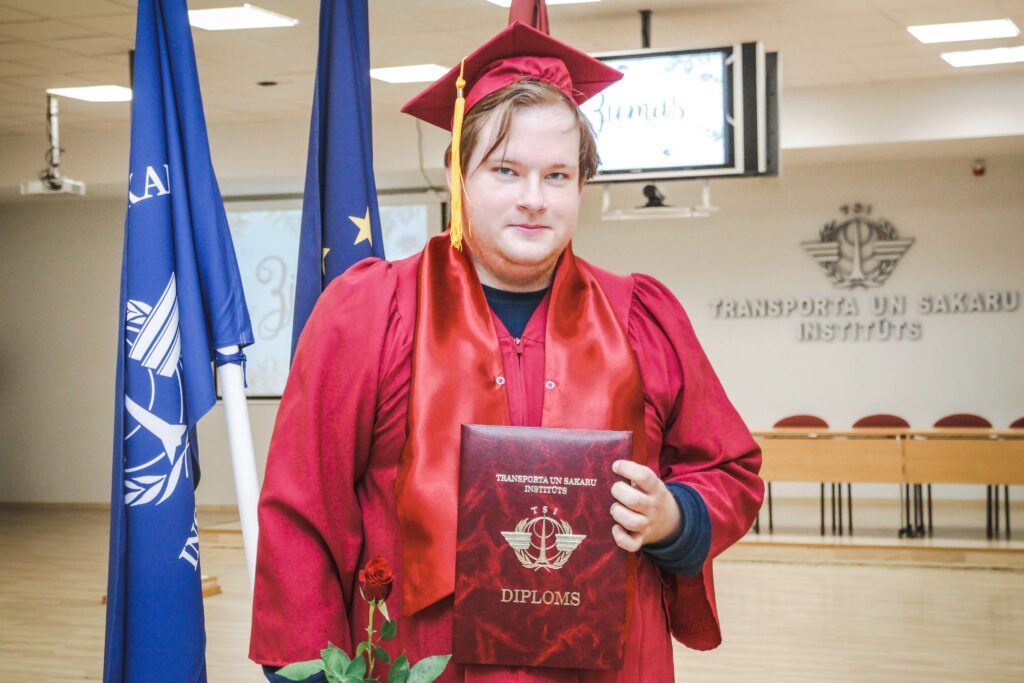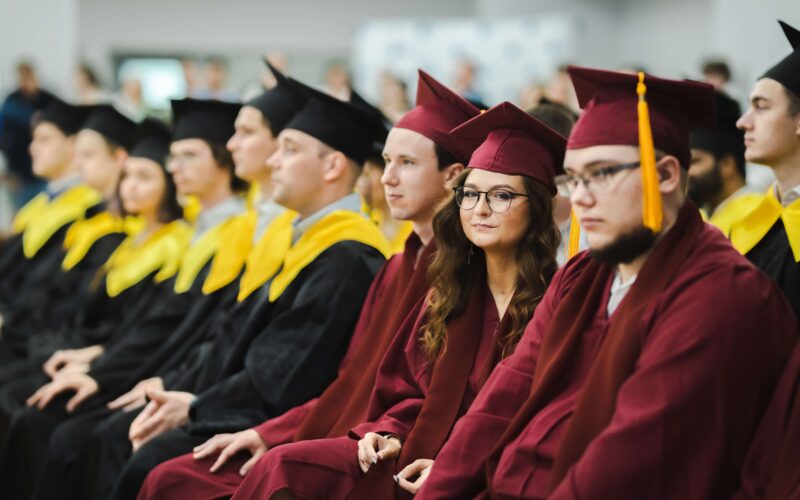Eduards Minajevs has been interested in aviation from a young age. Given his fascination with flying, it made sense that, when thinking about what degree to pursue, it would involve the aviation sector.
Eduards, who is based in Riga, Latvia, recalls that he “wished to be part of the fastest transportation industry available to most people”. As his high school had strong links with the Transport and Telecommunication Institute (TSI), choosing to study at TSI university was an easy decision.
TSI has a long history dating back to 1919. It was established as TSI in 1999, is the only private technical university in Latvia, and is accredited to offer study programs at all levels, from undergraduate to PhD.
Eduards decided to undertake a Bachelor of Science in Aviation Transport (now called BSc Aviation Engineering), graduating in 2014.
Once he’d completed his BSc, Eduards worked at airBaltic, Latvia’s flag carrier, before moving to SmartLynx, a Latvian charter airline. He considered pilot training in Riga but discovered that he wouldn’t meet the medical requirements. Instead, he found a new path with a Masters in Aviation Management. He knew that a career in a form of management was a promising option so he decided to concentrate on the engineering side of aviation.

This led Eduards to consider a Master’s degree, as he explains: “I had to choose between two Master’s programs, one of which was purely technical and had nothing related to finance. I wanted to have a broader view of the industry and so I looked at a new program at TSI – a Professional Master’s in Aviation Management.”
The Master’s degree took two years but, for Eduards, it coincided with the Covid pandemic which changed the delivery of the course.
“If you are in aviation, you need to inspire others and give reassurance. And that’s the way professors of TSI university taught me. We had a really great online school and we got a lot of useful knowledge and experience…We were encouraged to think and make our own decisions. It was really, really useful and I’m really glad I had this opportunity.”
He adds: “The Master’s degree was oriented on administration, finance, economics, and relationships.”
TSI has recently added a double degree to its range of courses. The Professional Master’s in Aviation Management is offered in conjunction with UWE Bristol in the UK (the University of the West of England) meaning that, after two years of study, students obtain degrees from both universities. For people who already have a professional degree, or have worked in a managerial position in the aviation industry for more than one year, there is a shorter version of the program – 1.5 years.
Other academic study programs at TSI range from transport and logistics, computer sciences, networks and electronics to robotics, management and business.
Meanwhile, Eduards graduated in February 2022 and has since used his Master’s qualification to further his career.
“I found a good job while I was about halfway through my Master’s program. It’s a new company called Union Aviation. We are a business airline.
“The company was looking for fresh people who really want to take on a new challenge. They offered me the job and I took it…I would say that writing my thesis, and getting more knowledge, helped me to work more efficiently and have a much broader view of the things happening in company. So, I really know about the technical side and commercial side.”
Eduards is a CAMO (Continuing Airworthiness Management Organization) engineer at Union Aviation, a business aviation operator based in Riga.
He says: “My job is to ensure that the aircraft are airworthy. That means the planning and assessment of technical issues, and it includes some project management. We’re currently running several major maintenance projects and planning several more.” He adds that “safety is our primary objective, it’s our primary goal”.
Looking back at his two qualifications from TSI, Eduards says that his BSc was key to entering the aviation industry, and his Master’s enabled him to further his career and has been “a ticket to brighter future”.
As for the years ahead, Eduards wants to stay within the aviation industry.
“It’s really challenging but in the same way it’s really rewarding. It’s always dynamic. I really see my future there. I would really like to continue my development and growth as an aviation expert as much as possible. I believe I have everything to achieve it including my knowledge and my interpersonal qualities.”

